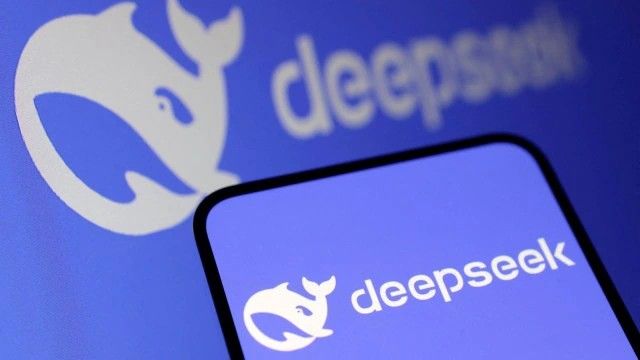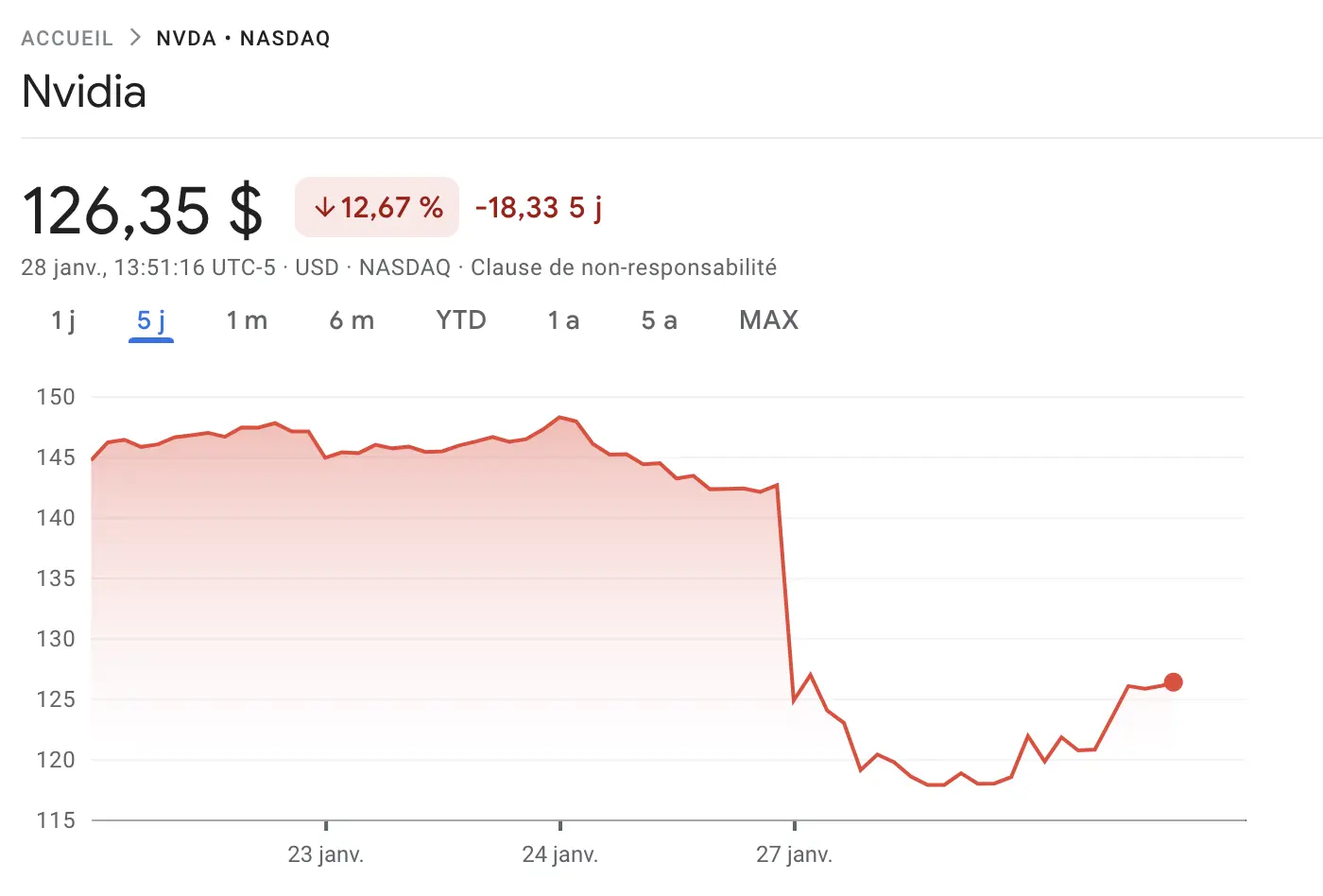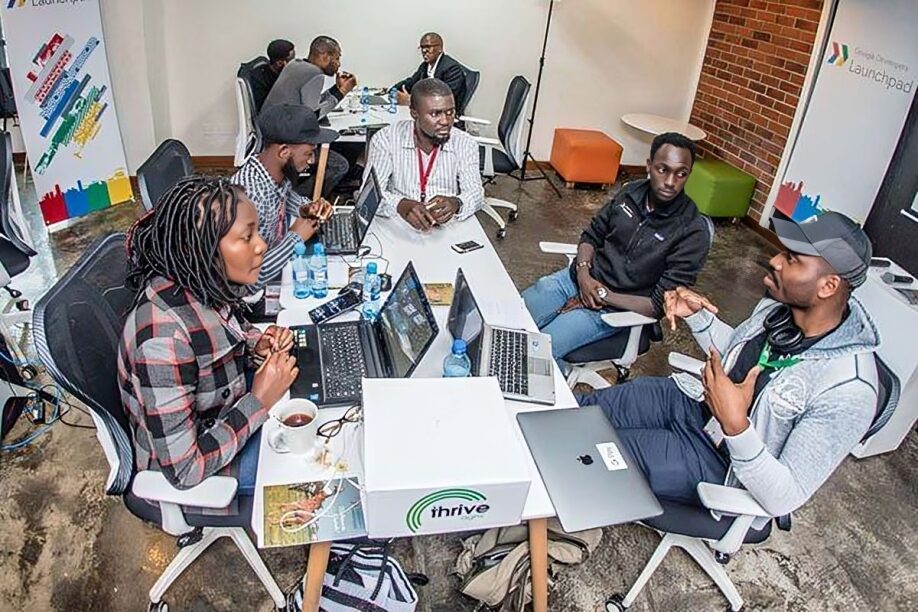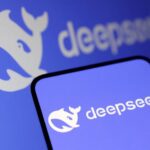
Expert Opinions & Politics and Governance The Re-Election of President Mahama: Implications and Future Prospects...


16.02.2025
The dawn of 2025 has brought with it a seismic shift in the artificial intelligence landscape, spearheaded by a previously little-known Chinese startup: DeepSeek AI. With the unveiling of its advanced AI model, DeepSeek has not only matched the performance of industry giants like OpenAI’s ChatGPT but has also triggered a reassessment of the economic principles underpinning the AI market and its geopolitical implications. The AI assistant, built by a startup based in Hangzhou, swiftly rose to the top of Apple’s App Store in just seven days, demonstrating its efficiency and affordability.
DeepSeek’s model took only two months and less than $6 million to build, according to a DeepSeek technical report – questioning the assumption that state-of-the-art AI requires high-end microchips and costly computing power. This could lead to broader adoption of AI tools as this AI may be affordable to businesses and individuals worldwide.

On Monday January 27, 2025, the U.S. stock market witnessed a pivotal moment as Nvidia, a major player in AI-focused chip manufacturing, experienced a staggering $590 billion loss in market capitalization in a single day. The figure exceeds the market capitalization of industry titans such as health insurer UnitedHealth, oil behemoth Exxon Mobil, and retailer Costco, and it surpasses the individual market values of all but 13 American corporations. This highlights how serious the incident is for investors and the larger tech industry. The domino effect extended beyond Nvidia, with several major indexes and corporations also suffering notable declines:
Many investors were caught off guard by these downturns, which made them wonder if companies that had made significant investments in extensive AI systems were overvalued. The release of R1, a large language model (LLM) developed by DeepSeek, which performed similarly to OpenAI’s ChatGPT but at a quarter of the price and without requiring the most cutting-edge hardware, set off this market reaction.
The widely held belief that high-performance AI requires significant financial outlays and strong computer infrastructures has been called into question by DeepSeek’s success. This insight may lead to a change in the methodology used to determine company valuations, which could level the playing field for smaller startups that do not have the enormous financial resources of major giants like Google or Microsoft to be given an opportunity to participate in the market.
Investment portfolios may be reorganized as a result of this change, with large investors selecting businesses that place a higher priority on resource efficiency and cheap development procedures. This change could happen through:
The future of AI services accessibility and cost are called into question by DeepSeek’s disruptive arrival into the industry. There are various outcomes to explore but two generally two possible outcomes appear:
First Case: Rapid Democratization
A significant reduction in service costs could increase the widespread and accessibility of AI tools for a larger group of users in the various parts of the world. The proliferation of free or inexpensive options may force current suppliers to concentrate on providing value addition through improved security, dependability, and specialized features like those that cater for people with disabilities among others. This supports the idea that the emergence of DeepSeek could be a big step toward democratizing AI by enabling startups, smaller businesses, and individual developers. This rapid democratization will also level the playing field for various entities (businesses and individuals) to have equal access to the possibilities of AI and how it can impact their businesses or life.
Second Case: Established Giants Hold Firm
Large, well-established businesses could continue to charge top dollar by capitalizing on their standing and adherence to global norms. They would keep serving business clients looking for reliable, tested solutions since there are various clients with various preferences. This could also be a great opportunity for the various well-established legacy giants in the industry to increase their revenue since all they have to do is to find the blueprint of developing their infrastructure cheap and serving a wide client base which comprises of clients they have already built overtime and clients that prefer to purchase from reliable and long-lasting businesses with proven solutions.

The accomplishment of DeepSeek implies that mere CPU power isn’t the only factor influencing AI performance. This insight may cause semiconductor companies to reconsider their current strategy of developing ever-faster and more costly hardware and making them readily available in the market.
It might be necessary for companies like Nvidia, Intel, and AMD to restructure their product portfolios and research & design processes, possibly investigating the following modifications.
Chipmakers are really under additional pressure to adjust swiftly or risk losing a sizable portion of the market due to geopolitical tensions, export restrictions, and competition from Chinese entrepreneurs.
The development of AI infrastructures has been a hot topic over the past years and every now and then new and efficient ways of developing AI is emerging. No one seems to have the right answer since various companies are all testing new ways to develop AI more efficiently and cost-effective. The AI sector may develop in a number of ways in the future within the periods of 2025 – 2030:
The rise of DeepSeek as a prominent AI player has important geopolitical ramifications. It challenges the supremacy of American tech companies and highlights China’s expanding AI capabilities. Increased competition and a possible change in the global balance of power could result from this development. In order to stay competitive and promote innovation domestically, governments around the world may react by:
To protect national interests and technological advantages, trade and export policies should be reevaluated, especially with regard to AI-related technologies and components.
According to Goldman Sachs Research, businesses such as DeepSeek are driving down significantlyw the cost of AI, which might accelerate its wide adoption and have a greater impact on global economic growth. Although the exact cost and development method of Chinese researchers’ AI technologies are yet unknown, a significantly cheaper cost structure can hasten the development and globalization of AI. This “breakthrough could raise macroeconomic upside over the medium-term if its cost reductions help increase competition around the development of platforms and applications,” said Joseph Briggs, who served as co-leader of Goldman Sachs’ Global Economics team.
However, Briggs also points out that since only cost isn’t the primary obstacle to adoption right now, the impact of adoption in the near term might be little. Concerns about privacy and ignorance of AI’s capabilities are the main obstacles to adoption in the foreseeable future, according to businesses.

DeepSeek’s groundbreaking achievements reveal a powerful message for Africa: with efficient resource utilization, Africans can develop their own sophisticated AI models from the ground up, even with limited funding. This presents a critical opportunity for African startups to shift their strategies, moving from reliance on existing, externally developed AI models to building indigenous AI solutions and maintaining control of their data on local infrastructure.
The reliance on foreign AI models raises significant national security concerns. Storing sensitive user data on foreign servers poses considerable security risks and raises critical questions about data privacy for African citizens.
We believe this is Africa’s moment to enter the AI development arena and compete globally. By leveraging the continent’s unique potential and fostering innovative solutions and AI development processes, African ingenuity can surpass current limitations and unlock previously unimaginable possibilities. Africa possesses untapped potential waiting to be unleashed.
Unquestionably, DeepSeek’s rise has upended the AI environment, upending governments and forcing a reevaluation of investment plans and economic assumptions. It remains to be seen if this disruption results in a hybrid strategy, a split ecology, or a quick democratization of AI. In any case, DeepSeek’s emphasis on affordability and open-source ideas is probably going to influence how AI is developed and applied in the future, affecting governments, corporations, and people all across the world. Adaptability, strategic investment, and an emphasis on ethical issues will be essential for navigating this revolutionary era as the AI revolution develops.






Expert Opinions & Politics and Governance The Re-Election of President Mahama: Implications and Future Prospects...

Business and Financial News, Expert Opinions & Politics and Governance Ghana’s decades of darkness: Finance...

Business and Financial News & Expert Opinions Taxation vs. Debt: Is Ghana making the Right...

International News The Big Public Debt Debate in Ghana: Who is Winning? A Historical Analysis...

Expert Opinions & Politics and Governance Tunani’s Take: COVID 19 as a Critical Juncture to...

Business and Financial News Ghana Stock Exchange records GH¢194 million in traded shares for first...
©2024. Tunani Africa – Ghana. All Rights Reserved | Designed by XCreativs Technologies